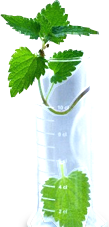



Author(s): Samiksha P. Dandekar and Dayanand P. Gogle *
The effect of crude drug anti-haemorrhoidal formulation on chronic inflammation in rats was studied. Cotton pellet-induced granuloma in rats is a subchronic model of inflammation and is sensitive to the treatment with the steroidal anti-inflammatory agents. The inflammatory reaction is readily produced in rats in the form of paw oedema with the help of irritants substances such as carrageenan, formalin etc. The animal model for anti-inflammatory activity (chronic inflammation) against the haemorrhoides used here is of cotton pellet induced granuloma in rats. Bark of Berberis aristata, Leaves and bark of Cassia fistula, Leaves of Cynodon dactylon, Fruits of Emblica officinalis, Leaves of Tamarindus indica, Fruits of Terminalia chebula and Terminalia belerica, Inflorescence of Sphaeranthus indicus, Bark and Leaves of Syzigium cumini, Bark of Holarrhena antidysentrica and Fruits of Mesua ferrea were the plant materials used in the preparation of crude drug formulation against haemorrhoides. Inflammation is one of the major part of haemorrhoides hence the effect of crude drug anti-haemorrhoidal formulation on the chronic inflammation was an essential aspect in the study. The conclusion of our study with this animal model (cotton pellet method) was thus that the Dose 3 (200 mg/kg) of the Crude anti-haemorrhoidal formulation was found to be the most effective dose for the anti-inflammatory activity